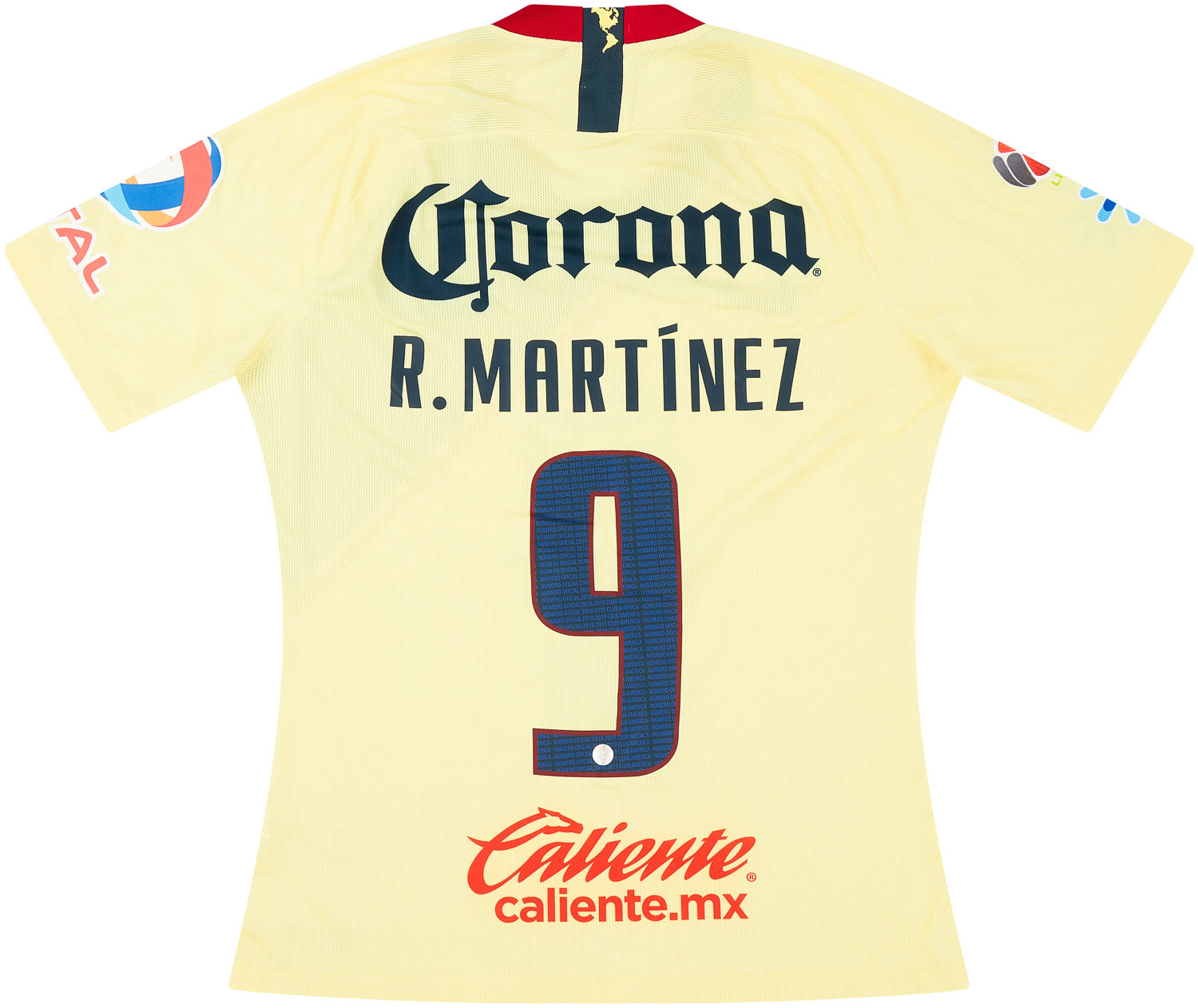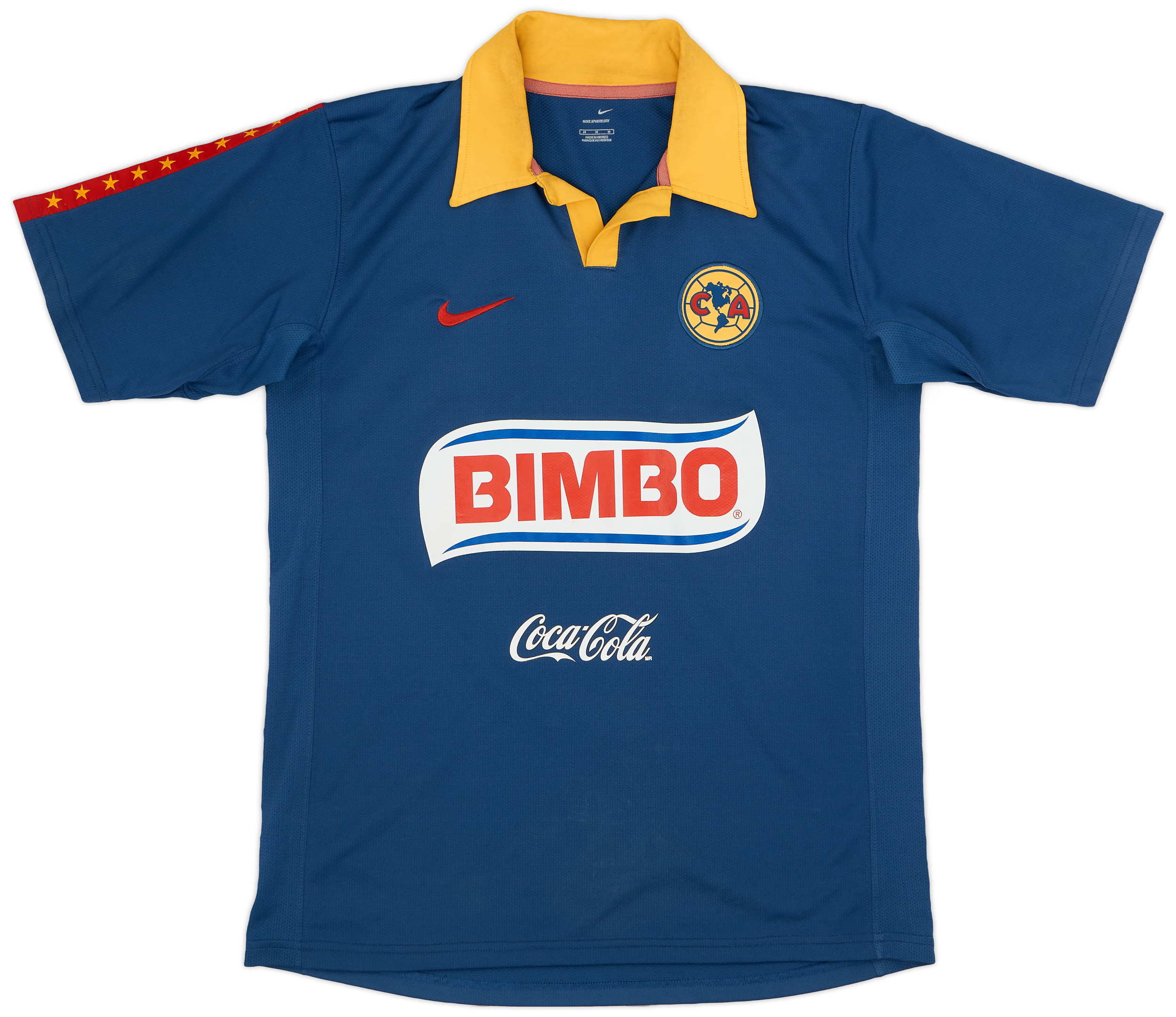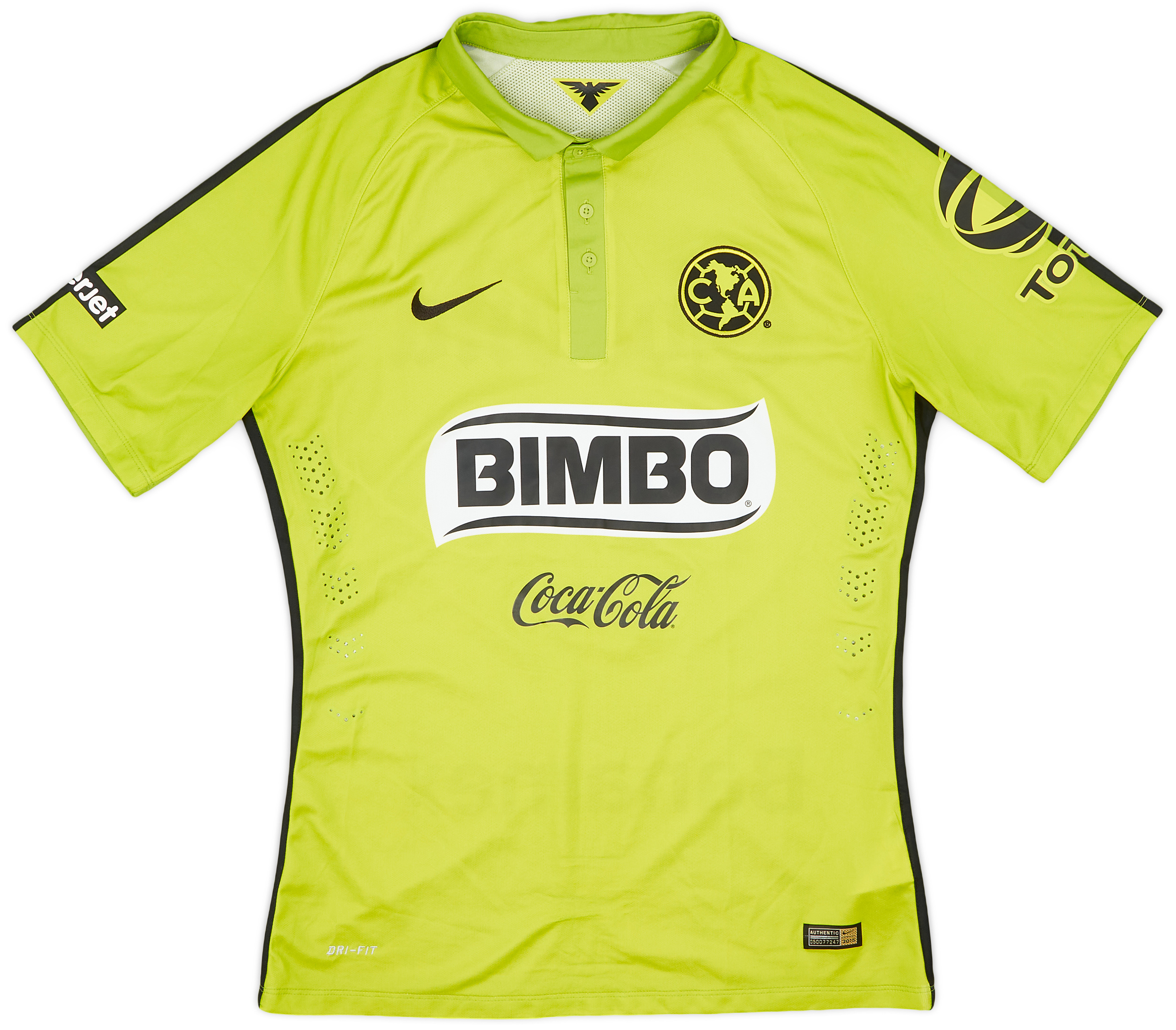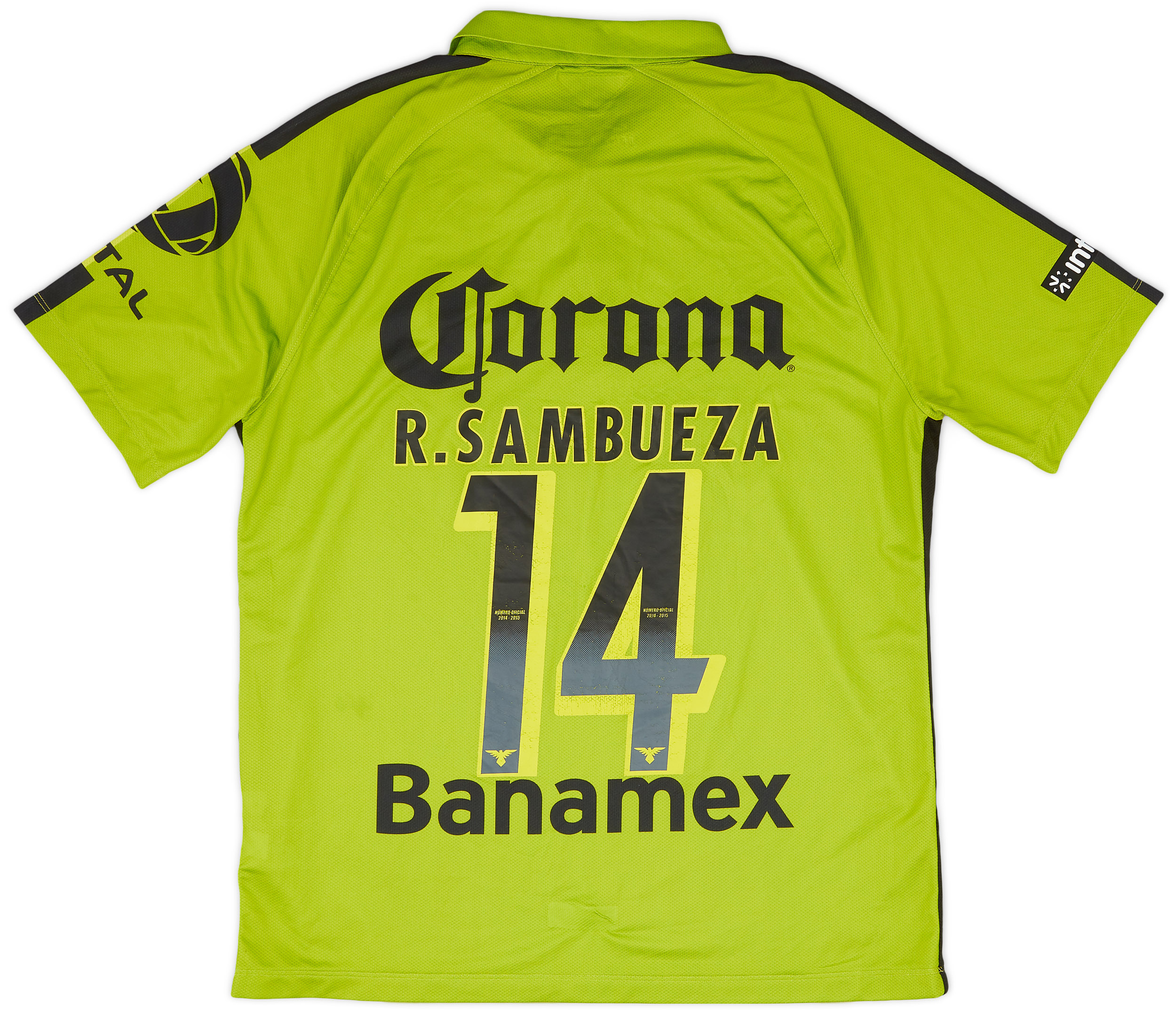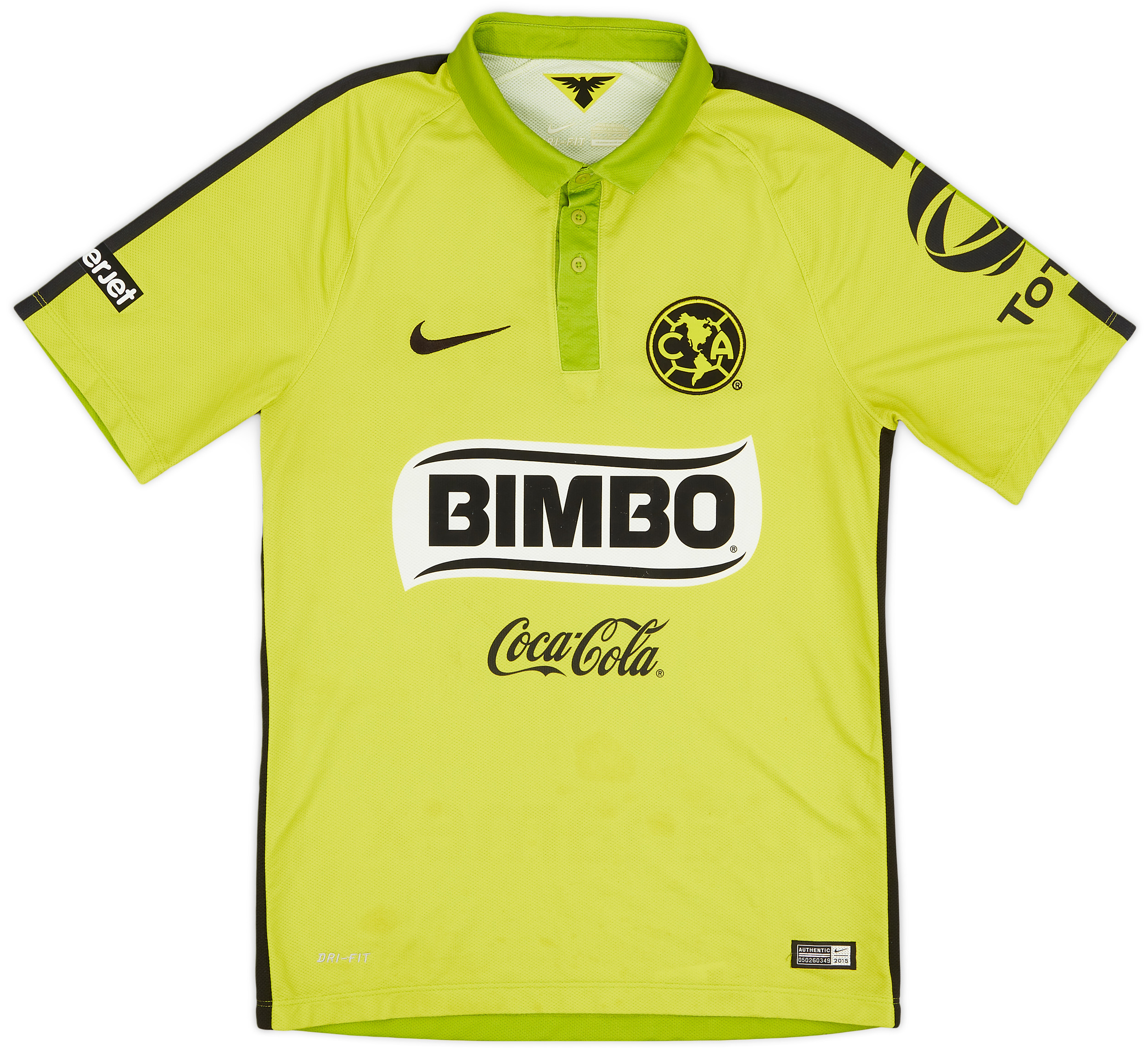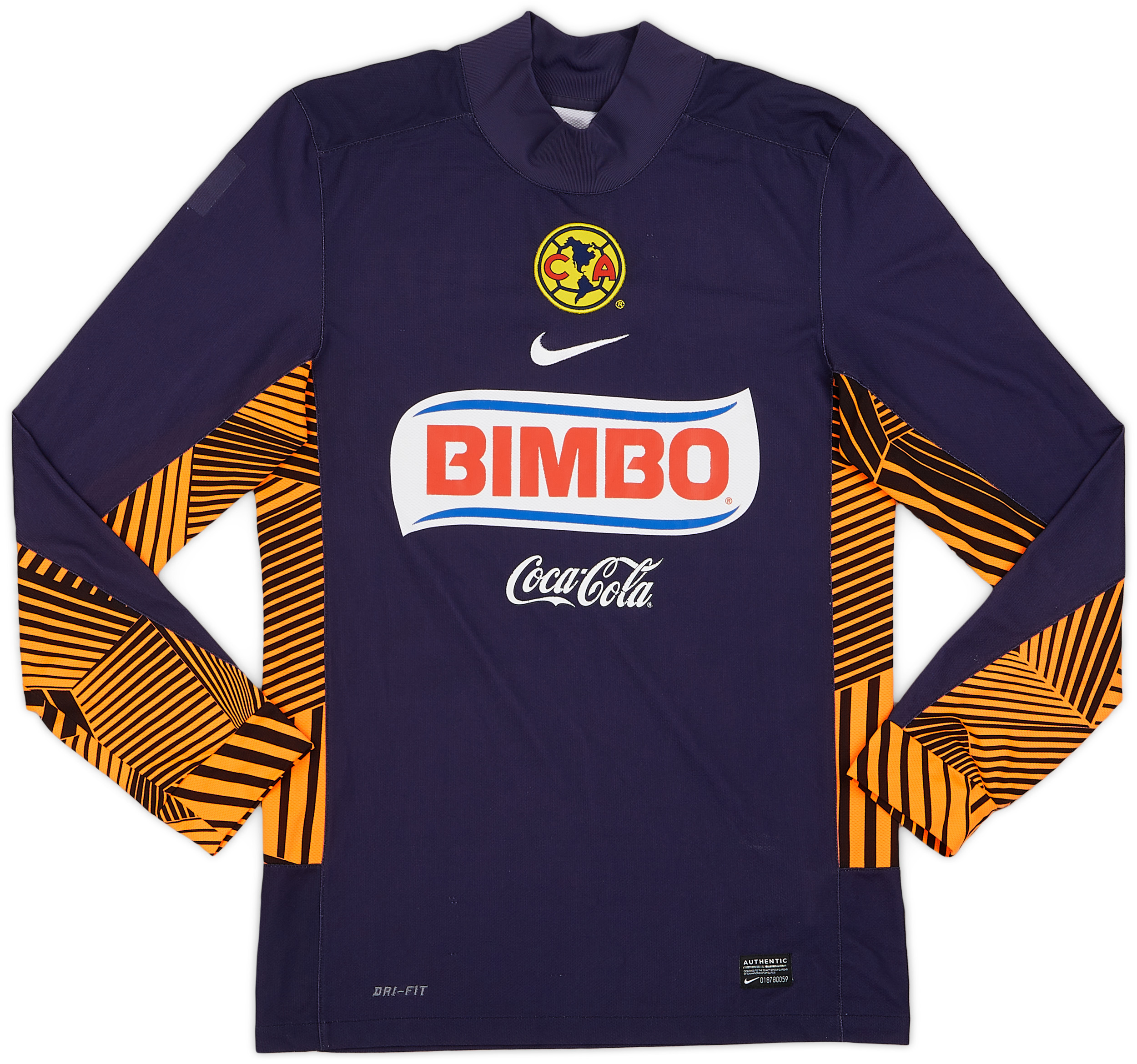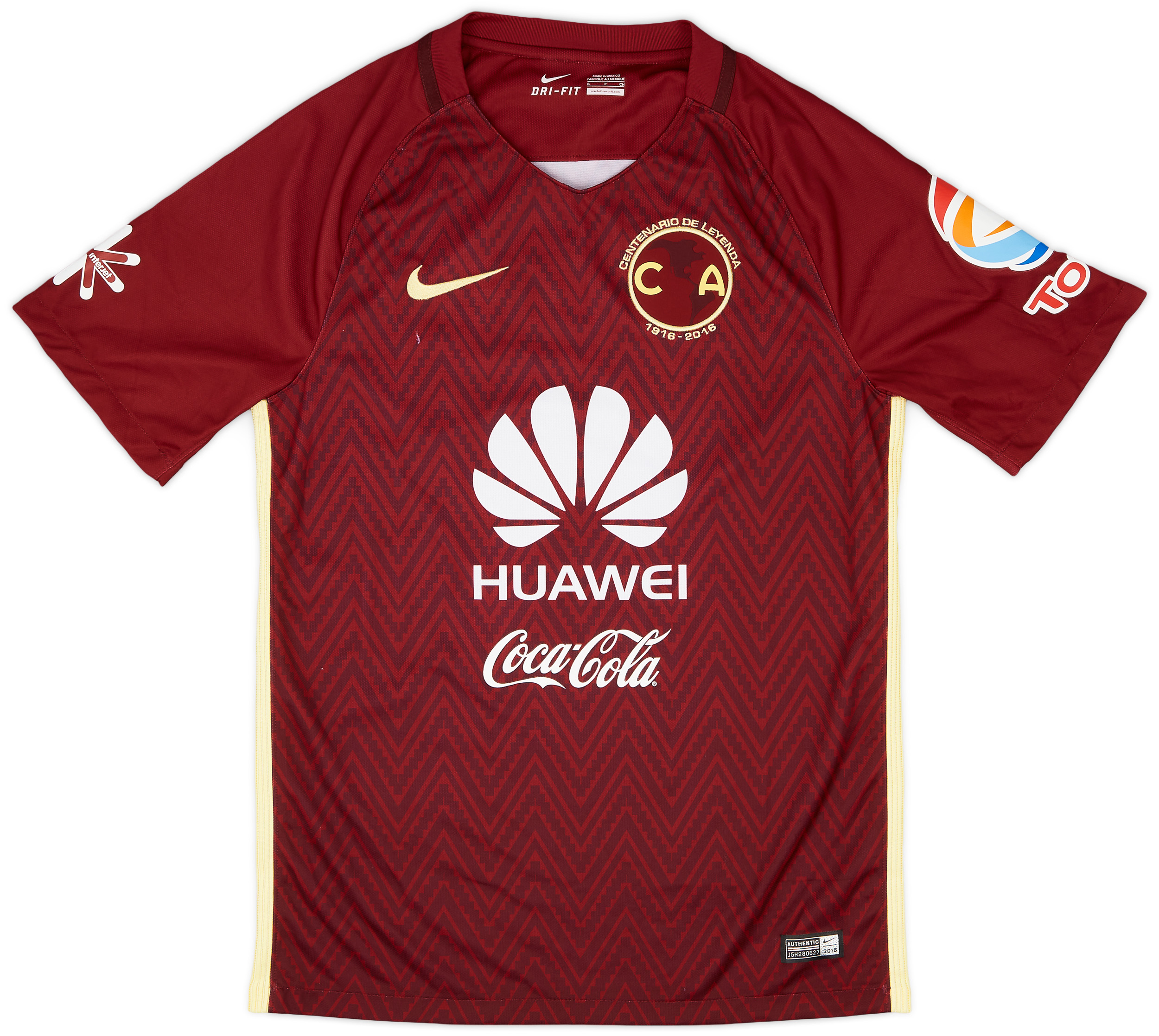Club America
Introduction Club America, based in Mexico City, is one of the most storied and successful football clubs in North America. Founded in 1916, the club has become synonymous with Mexican football and is revered by fans for its rich history, passionate support, and a culture rooted deeply in Mexican tradition. With the slogan “Las Águilas” […]
2018 Club America Match Worn Home Shirt R.Martinez #9 (v Manchester United)
177.99£ - ca: €210
2016-17 Club America Centenary Home Shirt - 8/10 - (M)
148.99£ - ca: €176
2006-07 Club America Away Shirt - 8/10 - (M)
148.99£ - ca: €176
2014-15 Club America Authentic Away Shirt - 8/10 - (L)
148.99£ - ca: €176
2014-15 Club America Third Shirt - 9/10 - (XL)
118.99£ - ca: €140
2014-15 Club America Third Shirt - 8/10 - (S)
118.99£ - ca: €140
2014-15 Club America Third Shirt R. Sambueza #14 - 7/10 - (L)
118.99£ - ca: €140
2014-15 Club America Third Shirt - 8/10 - (XL)
118.99£ - ca: €140
2014-15 Club America Third Shirt - 7/10 - (M)
106.99£ - ca: €126
2014-15 Club America Third Shirt - 6/10 - (S)
106.99£ - ca: €126
2011-12 Club America GK Shirt - 7/10 - (M)
94.99£ - ca: €112
2021-22 Club America Away Shirt - 9/10 - (S)
94.99£ - ca: €112
2013-14 Club America Third Shirt - 9/10 - (M)
94.99£ - ca: €112
2015 Club America Home Shirt - 6/10 - (M)
82.99£ - ca: €98
2020-21 Club America Home Shirt (S)
70.99£ - ca: €84
2016-17 Club America Centenary Away Shirt - 5/10 - (S)
70.99£ - ca: €84
2022-23 Club America GK Shirt
70.99£ - ca: €84
2022-23 Club America Third Shirt
53.99£ - ca: €64
2016-17 Club America Centenary Away Shirt - 9/10 - (Women's S)
47.99£ - ca: €57
2000s Club America Fan Shirt - 8/10 - (XL)
35.99£ - ca: €42
2019-20 Club America Home Shirt - 8/10 - (L.Boys)
29.99£ - ca: €35
Introduction
Club America, based in Mexico City, is one of the most storied and successful football clubs in North America. Founded in 1916, the club has become synonymous with Mexican football and is revered by fans for its rich history, passionate support, and a culture rooted deeply in Mexican tradition. With the slogan “Las Águilas” (The Eagles), Club America boasts a vibrant identity that blends athletic excellence with a powerful connection to its fanbase and the broader cultural landscape of Mexico. As one of the oldest football clubs in Mexico, America’s journey through the years has been marked by triumph, innovation, and an enduring legacy.
Club History
Founded by a group of American businessmen, Club America initially aimed to bring a North American style of football to Mexico. The team took its first major steps in local competitions, quickly making a name for itself. The club’s first significant success came in 1924 when it won its first Campeonato de Primera Fuerza, one of the predecessors to the current Liga MX. Over the decades, Club America has faced its share of challenges, including a turbulent period during the 1930s and the 1950s, but it rebounded successfully with the guidance of visionary coaches and strategic management.
Key moments in Club America’s history also include the establishment of its home ground, the Estadio Azteca, in 1966, which has become an iconic venue for both Club America and the Mexican national team. The Azteca was, notably, the first stadium to host two FIFA World Cup finals (in 1970 and 1986), forever linking the club to significant milestones in football history.
Achievements
Club America’s record of achievements is a testament to its dominance in Mexican football. As of October 2023, the club has claimed a staggering 13 Liga MX championships, making them one of the most successful teams in the league’s history. These championships reflect not only their competitiveness but also their ability to adapt and evolve in a rapidly changing football landscape.
On the international stage, Club America has made significant strides as well. The team has won the CONCACAF Champions League seven times, demonstrating its prowess in regional competition. This includes recent victories, marking the club as a formidable force in North America. Their international titles underscore the club’s ambition to not just dominate domestically but also make a significant impact on the global football scene.
Significant Players and Matches
Throughout its history, Club America has been home to many legendary players who have left a lasting impact on the club’s identity. Notable figures include the likes of Cuauhtémoc Blanco, whose flair and vision captured the hearts of fans; Hugo Sánchez, who later became one of the most successful Mexican players in Europe; and more recently, players like Oribe Peralta and Guillermo Ochoa, who have showcased their talents on both national and international stages.
One of the most significant matches in Club America’s history occurred in 1987 when they triumphed over the Cosmos in the CONCACAF Champions Cup final. That victory established America as a powerhouse in the region and set the tone for future success. Additionally, their intense rivalry with Chivas Guadalajara, known as the “Clásico Nacional,” produces some of the most thrilling encounters in Mexican football, electrifying fans and showcasing the fierce competition in Liga MX.
Cultural Impact
The impact of Club America extends well beyond the football pitch. It represents a cultural phenomenon in Mexico, with a passionate fanbase known as the “americansistas.” This community fosters a deep sense of identity and pride, bonding over shared experiences and loyalty to the club. The club’s emblem, a yellow eagle, stands as a powerful symbol of strength and resilience, inspiring generations of supporters.
The club’s outreach efforts, including grassroots programs and initiatives to promote sports in underprivileged communities, illustrate a commitment to social responsibility. Through these efforts, the club not only builds its future generation of fans but also contributes positively to society, further engraining it as a pillar of Mexican culture.
Conclusion
In summary, Club America is not just a football club; it is a cornerstone of Mexican culture and a symbol of sporting excellence. With a rich history marked by numerous titles, a history of nurturing world-class talent, and a deep connection to its fanbase, Club America has etched its name into the annals of football history. As it continues to innovate and inspire both on and off the pitch, the legacy of Las Águilas remains influential and revered in the world of football. Whether they are celebrating a championship victory or battling fierce rivals, Club America stands as a testament to the power of sport to unite and inspire.
